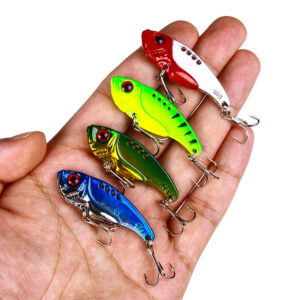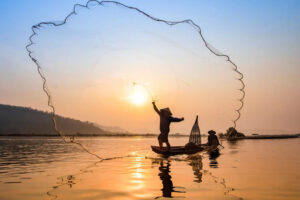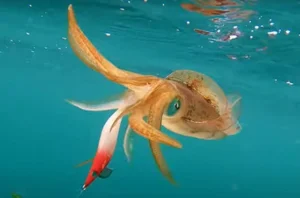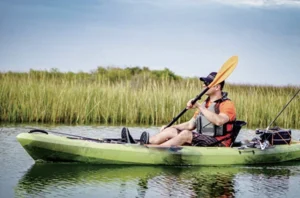Einführung
Fishing lures are essential tools for anglers of all skill levels. Whether you’re a beginner or an experienced fisherman, selecting the right lure is crucial for a successful fishing trip. With so many different types of lures available, it can be overwhelming to choose the right one for your needs. However, with the help of this ultimate guide, you can learn everything you need to know to select the perfect fishing lure.
The Different Types of Fishing Lures
There are several different types of fishing lures, each designed to target specific species of fish. Understanding the different types of lures will help you choose the right one for your needs.
1. Crankbaits
Crankbaits are designed to mimic the movement of live baitfish. They are available in a variety of sizes and colors and are ideal for catching bass, walleye, and pike.
2. Jigs
Jigs are versatile lures that can be used in both freshwater and saltwater. They are designed to be bounced along the bottom of the water and are ideal for catching fish like bass, crappie, and trout.
3. Spinnerbaits
Spinnerbaits are designed to attract fish with their spinning blades. They are ideal for catching bass, pike, and musky.
4. Soft Plastics
Soft plastics are made of soft, flexible material and come in a variety of shapes and sizes. They are ideal for catching fish like bass, trout, and crappie.
5. Topwater Lures
Topwater lures are designed to float on the surface of the water and imitate the movement of insects or small animals. They are ideal for catching fish like bass and trout.
6. Swimbaits
Swimbaits are designed to mimic the movement of live fish. They are available in a variety of sizes and colors and are ideal for catching bass and pike.
Factors to Consider When Choosing Fishing Lures
Choosing the right fishing lure can be a daunting task, but there are several factors to consider that can help you make the right choice.
1. Water Conditions
The water conditions play a crucial role in determining which lure to use. Factors such as water temperature, clarity, and depth can all affect which lures are most effective.
2. Target Species
Different fish species have different feeding habits and preferences. Understanding the feeding habits of your target species will help you choose the right lure.
3. Lure Size
The size of the lure is also an important factor to consider. Smaller lures are ideal for catching smaller fish, while larger lures are better suited for bigger fish.
4. Lure Color
Lure color can also play a role in attracting fish. Brightly colored lures are ideal for murky water, while natural colors are better suited for clear water.
Tips for Choosing the Right Fishing Lure
Choosing the right fishing lure can take some trial and error, but there are several tips you can follow to increase your chances of success.
1. Match the Hatch
Matching the hatch means using a lure that imitates the prey that the fish are currently feeding on. This can increase your chances of success.
2. Experiment with Different Lures
Don’t be afraid to try out different types of lures to see what works best for your target species and fishing conditions.
3. Use the Right Knot
Using the right knot to tie your lure onto your line is crucial for ensuring that your lure stays secure and doesn’t come loose while you’re fishing.
4. Vary Your Retrieval Speed
Varying the speed at which you retrieve your lure can help make it more enticing to fish and increase your chances of catching something.
5. Pay Attention to the Weather
The weather can also play a role in determining which lures to use. For example, on cloudy days, it may be better to use darker-colored lures, while on sunny days, lighter-colored lures may be more effective.
FAQs about Fishing Lures
Here are some frequently asked questions about fishing lures:
Q1. What is the best type of lure for catching bass?
A1. Crankbaits, jigs, and spinnerbaits are all effective for catching bass, so it ultimately comes down to personal preference and fishing conditions.
Q2. How do I know which color lure to use?
A2. It’s best to choose a lure color that matches the natural prey in the area where you’re fishing. If the water is murky, brighter colors can help attract fish.
Q3. How do I tie my lure onto my line?
A3. There are several knots you can use to tie your lure onto your line, but the Palomar knot is a popular choice among anglers.
Q4. How can I make my lure more enticing to fish?
A4. Varying your retrieval speed and using a technique known as “jigging” can help make your lure more enticing to fish.
Abschluss
Choosing the right fishing lure can be a challenging task, but by understanding the different types of lures available and considering factors such as water conditions, target species, lure size, and lure color, you can increase your chances of success. Experimenting with different lures and following the tips outlined in this guide can help you find the perfect lure for your next fishing trip. Happy fishing!






